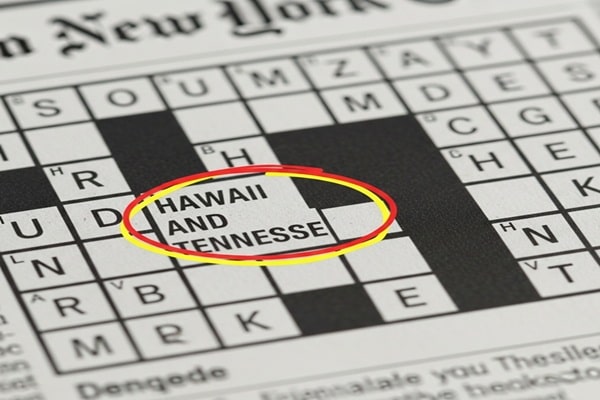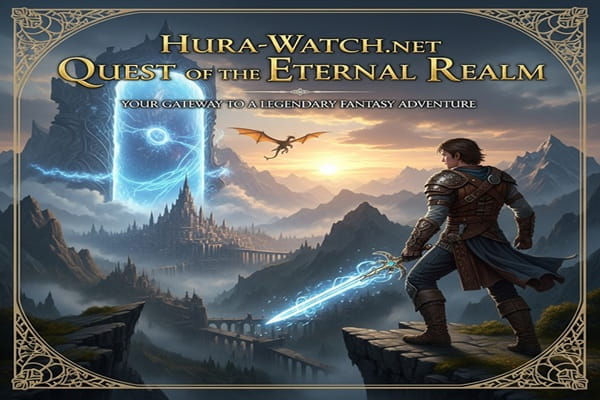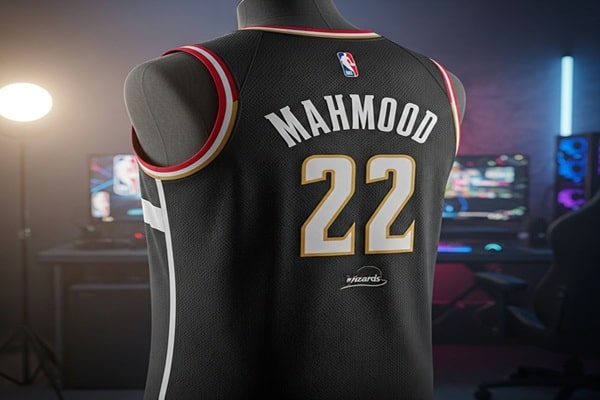Hawaii and Tennessee NYT Crossword: A Trivia Clue That Stumped Solvers

If you’re a crossword fan, you know the rush that comes when a tough clue finally clicks. Sometimes it’s a clever pun, sometimes a pop culture reference, and other times it’s something so simple it feels almost sneaky. That’s exactly what happened with a recent clue from the New York Times Mini Crossword that had solvers everywhere doing a double take.
The clue? “Hawaii and Tennessee are the only two U.S. states whose names end in doubled letters, e.g.”
The answer? TRIVIA.
At first, many people tried to connect the states geographically, historically, or culturally. But the real “aha moment” came when they realized it wasn’t about maps or history at all—it was about spelling. That’s the kind of clever twist that makes crossword solvers smile, groan, and immediately share it with friends.
In this article, we’ll explore why this clue took off, the hidden connection between Hawaii and Tennessee, what it says about crossword construction, and what you can learn to become a sharper solver.
The Clue That Sparked Curiosity
On September 21, 2024, the NYT Mini Crossword dropped a clue that read:
“Hawaii and Tennessee are the only two U.S. states whose names end in doubled letters, e.g.”
The answer, as many eventually realized, was TRIVIA—a simple but brilliant factoid.
Why did it stand out? Because most solvers went down the wrong path first, thinking of geography, state mottos, or culture. That misdirection made the eventual reveal even more satisfying.
Why Hawaii and Tennessee? The Hidden Connection
Let’s break it down:
-
Hawaii ends with “ii.”
-
Tennessee ends with “ee.”
They’re the only two U.S. states that end with double letters.
This isn’t about population, landmarks, or politics. It’s about spelling quirks—a linguistic oddity most people never noticed before. That’s what makes it trivia gold.
Why This Crossword Clue Went Viral
So what made this clue so share-worthy? Three big reasons:
1. Unexpected Simplicity
Crosswords often lean on wordplay or cultural references. This clue? Pure observation. No tricks—just noticing something unusual in plain sight.
2. Widespread Appeal
It resonated with everyone, from casual solvers to language nerds, because it wasn’t obscure. Anyone could solve it with the right perspective.
3. The Aha Moment Payoff
Good crossword clues are like riddles—you struggle a bit, then suddenly it clicks. When solvers realized the answer was trivia, it felt both obvious and clever at the same time.
Reactions Across the Web
After the puzzle dropped, crossword forums, Reddit threads, and blogs lit up with reactions. Here are a few highlights from solvers:
-
“I stared at that clue for five minutes before realizing it was about letters, not land!”
-
“As a lifelong Tennessean, I never noticed the ‘ee’ ending before.”
-
“That’s the beauty of the Mini—it makes you see everyday words differently.”
The clue wasn’t just fun—it was shareable. And in today’s crossword community, that’s what makes something go viral.
The Role of Trivia in Crosswords
Trivia has always been a key ingredient in crossword puzzles. It adds variety, educates, and keeps solvers on their toes. In fact, trivia clues often work because they:
-
Teach you something new (like double letters in state names)
-
Distract you just enough to make the aha moment sweeter
-
Fill awkward word slots with surprising, clever answers
This clue did all three.
Comparing to Other Classic NYT Trivia Clues
The New York Times Crossword is famous for sprinkling in trivia. Here are a few classic examples:
-
“Only U.S. state with a non-rectangular flag” → Ohio
-
“Most populous U.S. capital after Phoenix” → Austin
-
“Number of rings on the Olympic flag” → Five
-
“First U.S. president born in a hospital” → Jimmy Carter
Each one uses a fun fact—not a pun—to surprise solvers.
What Solvers Can Learn from This Clue
The Hawaii–Tennessee clue isn’t just entertaining—it’s educational for solvers, too. Here are a few takeaways:
Look Beyond the Obvious
Just because a clue mentions U.S. states doesn’t mean it’s about geography. Sometimes it’s about the words themselves.
Think Linguistically
Pay attention to letters, endings, double consonants, or unusual spelling patterns. Crossword clues love these details.
Brush Up on Trivia
Trivia isn’t just for bar quizzes. Random factoids are often the difference between a guess and a confident answer in crosswords.
Behind the Grid: The Art of Constructing Trivia Clues
Creating a clue like this isn’t as simple as it looks. Crossword constructors often:
-
Keep a database of quirky facts for reference
-
Look for linguistic oddities that solvers overlook
-
Balance fairness and misdirection so the clue feels challenging but solvable
That’s why the Hawaii–Tennessee clue worked so well—it was simple but carefully designed to make solvers think twice.
Also Read : Denver Broncos vs Cleveland Browns Match Player Stats: Full Breakdown of a Thrilling NFL Showdown
More Trivia-Based NYT Clues to Try
If you loved this clue, here are a few more trivia-style brain teasers you might enjoy:
-
“This is the only U.S. state that contains the letter Z.” → Arizona
-
“The only planet not named after a god.” → Earth
-
“This creature’s name is the same when written backward.” → Emu
See the pattern? Trivia clues aren’t about tricks—they’re about noticing what’s been hiding in plain sight.
Why the NYT Mini Crossword Keeps Growing in Popularity
The Mini has become a daily ritual for thousands of players. It takes just 1–2 minutes to solve, but it’s packed with cleverness. Here’s why people love it:
-
Quick yet challenging—like a shot of espresso for your brain
-
Mobile-friendly—perfect for solving on the go
-
Creative and surprising—proof that small grids can still deliver big aha moments
The Hawaii–Tennessee clue is a great example of why the Mini is so addictive—it’s short, smart, and shareable.
Conclusion: A Simple Clue with a Lasting Impact
The “Hawaii and Tennessee” NYT crossword clue might seem small, but it’s a masterclass in puzzle design. It combined:
-
Trivia (a fun fact about state names)
-
Misdirection (tricking solvers into thinking geographically)
-
Simplicity (no obscure knowledge required)
-
Satisfaction (a big payoff once you cracked it)
It’s a reminder that the best crossword clues don’t always rely on difficulty—they rely on cleverness. And sometimes, the smallest puzzles leave the biggest impression.
So next time you’re solving a crossword and a clue looks “too simple,” don’t underestimate it. The answer might just be another TRIVIA-level gem waiting to surprise you.
FAQs
What was the Hawaii and Tennessee NYT crossword clue?
It was a Mini Crossword clue from September 21, 2024: “Hawaii and Tennessee are the only two U.S. states whose names end in doubled letters, e.g.” The answer was TRIVIA.
Why was this crossword clue considered clever?
Because it tricked solvers into thinking about geography when it was actually about spelling patterns.
Are there other states that end with double letters?
No—only Hawaii (“ii”) and Tennessee (“ee”) share this distinction.
Where can I access the New York Times Mini Crossword?
You can play daily on the NYT Crossword app or at nytimes.com/crosswords.
Is trivia commonly used in NYT crosswords?
Yes. Trivia-based clues are a staple of both the full-size and Mini puzzles, making them fun, surprising, and educational.



